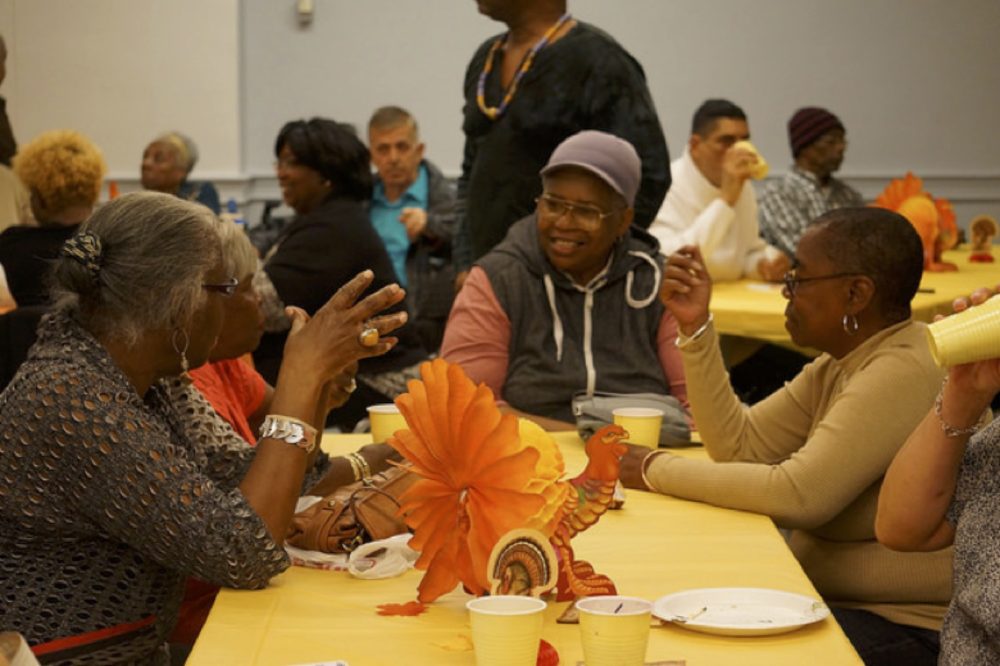Cross posted from The Diverse Elders Coalition Blog.
By Preston Van Vliet, National Campaign Organizer of the LGBTQ Work-Family Project, a joint initiative with A Better Balance and Family Values @ Work. You can reach him at [email protected].
“How’s that jade plant doing?” Joe* asked me as we sat down at his kitchen table for our weekly visit. “You said you put it in a westward facing window, right? It should be getting way more light than mine do.” He gestured toward his patio door where cactuses, orchids, jade plants, and an avocado plant were growing on a bench he built. I had been Joe’s housing case manager for over a year, and our regular visits at his one-bedroom apartment had become a favorite routine.
At 64, Joe was the oldest person on my caseload. Although Joe was part of a housing program in Michigan, his children were scattered across the country. We were trying to get him into affordable housing in South Carolina so he could live closer to his relatives.
We chatted about his son’s recent visit, during which Joe learned that his son wouldn’t be able to visit for Christmas. “It is what it is,” Joe lamented. He tucked his hand under his waistband to ease pressure off his untreated hernia, a habit he had for years. Joe was wary of the hernia surgery and aftercare support necessary for someone of his age.
“Graham, Anne, and I will have Christmas dinner,” Joe replied. “I need to take Graham to the doctor anyway so we’ll talk about it then.” Graham, forty-seven years old, was living in the same complex and was also on my caseload. Joe and Graham had met at an adult day center during a period of homelessness, before they got into the housing program. Anne, in her fifties, lived in the complex as well, but was not in the program. She was working as a health tech part-time.
Joe and I wrapped up our visit by reviewing his upcoming doctor appointments: a yearly exam, lab work to monitor his Hepatitis C, and the need to renew his prescriptions. I packed up my bag and took off smiling, with Joe’s promise that he would have a new wood carving to show me next week.
***
Joe’s informal support network shows that family is more than those to whom we are biologically or legally related. It includes other loved ones who have shared in our joys and our sorrows and who are there for us when we need it. Even though data show that aging adults lean heavily on close friends and neighbors for vital support, many public policies do not capture these relationships. A report from the Department of Labor showed that 53% of Americans who care for an older adult provide that unpaid care to a friend or loved one other than a spouse or parent. The “nuclear family” model (a married heterosexual couple and their biological children) has dominated U.S. public policies for decades, but this model leaves out LGBTQ families, multi-generational and extended family households, and many single parent households. For aging adults and individuals who have experienced homelessness, a more realistic and inclusive definition of family is also necessary to cover their support networks.
But there’s growing momentum, through workplace leave campaigns like paid sick and safe days and paid family and medical leave, to make sure “family” is defined inclusively to cover these relationships. Los Angeles, Chicago, Cook County (Illinois), Saint Paul (Minnesota), and the state of Arizona have all passed paid sick and safe day laws guaranteeing workers the ability to earn paid sick time that can be used to take care of their loved ones, even absent a blood or legal relationship. These inclusive family definitions would allow Joe’s neighbor and close friend, Anne, to take paid time off work to help him recover if he had hernia surgery or to help him access Hepatitis C treatment.
In the face of threatened cuts to the federal programs that aging adults rely upon for their health and well-being (including Joe’s permanent supportive housing program through HUD and his Medicaid), individuals will increasingly rely on others in their community for care and support. While fighting the rollback of these programs, we should also recognize and protect these informal care networks. We need your help to build on the local and state momentum for paid sick and safe days and paid family and medical leave with inclusive definitions for “family” so that all aging adults are able to provide care to and receive care from their loved ones.
Advocacy organizations like A Better Balance and Family Values @ Work are collaborating with statewide coalitions to make sure every family is included.
*Some names and locations in this story have been changed to protect client anonymity.
The opinions expressed in this article are those of the author and do not necessarily reflect those of the Diverse Elders Coalition.
**Photo courtesy of SAGE. Thanksgiving dinner with chosen family at SAGE-GRIOT Innovative Senior Center of Brooklyn.








